No, Donald Trump Isn’t “Self-Funding” His Campaign
Donald Trump likes to tell people that he'll never be beholden to special interests because he's self-funding his campaign. So far, though, that doesn't really seem to be true.
During Tuesday night’s debate, as well as at nearly every campaign appearance he’s made and interview he’s given, Donald Trump hit upon his claim that he is “self-funding” his campaign for President and therefore would not be beholden to high-dollar donors the way his opponents would if they made it to the Oval Office. Buzzfeed’s Andrew Kaczynski, however, points to this report from The New York Times that seems to prove that Trump simply isn’t telling the truth and that, in fact, he hasn’t been very much of his own money into the race since the spring, when he wasn’t officially a candidate for President yet:
For months, Donald J. Trump has highlighted his credentials as a politician who was financing his own campaign for president.
No longer.
Mr. Trump revealed in a filing Thursday to the Federal Election Commission that the vast majority of the money he raised and spent this summer as he rose to the top of national polls came not from his own coffers, as it had in the spring, but from about $3.7 million in what he called “unsolicited contributions.” Some 74,000 donors pitched in an average of about $50 to help his campaign, he reported.
Mr. Trump himself contributed only about $100,000 in in-kind contributions, including rent space that he donated and payroll expenses that he covered. That represented a huge drop from the spring, when Mr. Trump donated about $1.9 million to his campaign, financing the bulk of it himself.
Trump’s decision earlier in the cycle to put up a donations link on his campaign website, which is of course common for every other candidate for office at any other level, raised eyebrows at the time largely because of Trump’s claim that he would be using his personal wealth to finance his campaign and, of course, he’s constant claims to be “really rich.” On some level, I suppose, it was a wise move on the campaign’s part because of the enthusiasm that had developed around the Trump campaign not long after he entered the race in mid-June. Giving these supporters a way to show that support by donating money at time when actual voting wasn’t a possibility, and still won’t be until the primaries actually start is arguably a way to keep enthusiasm going while at the same time helping the campaign itself. Additionally, while the amount of money that the campaign has actually raised isn’t all that impressive compared to the more aggressive fundraising efforts of the others candidates and his campaign it is still a fairly good amount for a campaign that hasn’t made fundraising a central part of its efforts. Finally, the truth of the matter is that we’re still at a point in the campaign where there would be plenty of reasons for campaigns not to spend large amounts of money regardless of whether they are self-funding or funding via donations. It won’t be until we get closer to the caucuses in Iowa and the primaries in New Hampshire, for example, that most campaigns will go on the air with massive television ad buys, for example, so the fact that, so far, the biggest Trump ad buy appears to be a radio blitz in early states that costs around $300,000 isn’t entirely surprising. So, while Trump hasn’t put much of his own money on the line yet, and in general hasn’t spent that much money on the campaign itself, isn’t entirely surprising.
One issue that these reports do raise, of course, is one that has followed Trump for years, namely how much he’s actually worth. Ever since the 1980s when he first really burst on the media scene, Trump has been the symbol for conspicuous consumption and wealth in a way that few men in his position ever really are. You don’t see many stories, for example, about Bill Gates, Warren Buffett, Mark Zuckerberg, or the late Steve Jobs bragging about how rich they are or inviting the media to come take pictures of their new home with the living room laid out in an ostentatiously ridiculous gold that seems as though its a parody of a bad Hollywood movie about Middle Eastern oil barons. Generally those men have been more likely to downplay their wealth and to talk about how they are giving it away in charitable efforts rather than using it to say to the world “look at me and see how rich I am!” Trump has always been the oppose of the Gates/Buffett model, and it’s been no different since he started running for President. Shortly after he got into the race he filed a financial disclosure with the Federal Election Commission that estimated his total net worth at more than $10 billion, although it’s worth noting that at least $3 billion of that estimate constitutes an estimate of the “value” of his personal “brand,” an entirely non-liquid assets. Just over a month ago, though, Forbes estimated that Trump’s net worth was closer to $4.5 billion, a report that earned a quick retort from Trump. A net worth of $4.5 billion is nothing to sneeze at, of course, and it still puts Trump fairly high on the list of the world’s wealthy, but this has always been a sensitive subject for Trump. Over the years Trump has filed or threaten to file lawsuits against a number of people who have stated that his claims about his wealth are untrue and exaggerated. The most recent such lawsuit, against an author who claimed in a 2005 book that Trump’s true worth was closer to the much lower $100 million to $250 million was dismissed by a New Jersey trial court Judge, apparently on the ground that there was no evidence to support the claim that the author was not trying to defame Trump.
The point about Trump apparently exaggerating his wealth ties into the self-funding issue quite simply. What Trump is worth, and what that net worth consists of, goes a long way toward telling us just money much money Trump could put into a Presidential campaign. If you listen to him speak about it, that’s an almost unlimited amount but that may not be the case. If Trump’s wealth, whatever it is, is tied up in real estate and secured assets that can’t easily be sold, then his actual access to cash may not be as easy as he claims to be. The fact that his buildings may be worth billions of dollars, for example, is really just an estimate of their value that doesn’t matter until the building is put on the market and a buyer is found. Estimates about the value of Trump’s “brand” are equally meaningless since that is an entirely ephemeral number that depends on how much people are willing to pay him to endorse products. That number may end up going down, by the way, given the controversial way he has run his campaign and the manner in which it has alienated so many demographic groups. To be blunt about it then, Trump may be rich on paper, but he may not be “rich” in real life in the way that he wants us to believe.
None of this is to say that Donald Trump is struggling for cash, of course, because he obviously isn’t. What it does raise, though, is the question is whether he has access to the kind of cash he would need to run the “world class” Presidential campaign he has been promising but, so far, not delivering. So far, Trump has succeeded as a candidate and risen in the polls without having to put much money into the effort.. We’re getting close to the time, though, where he’ll have to decide how much of his own money his willing to put into this effort, and that’s the point when we’ll really see just how serious he is about all of this.
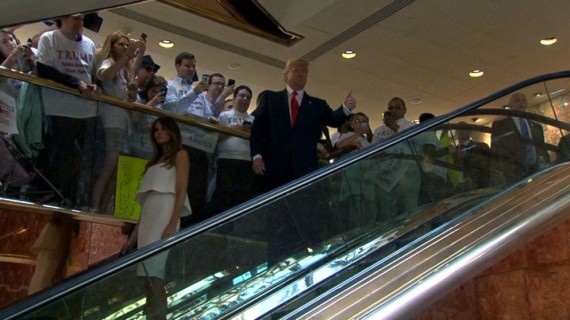

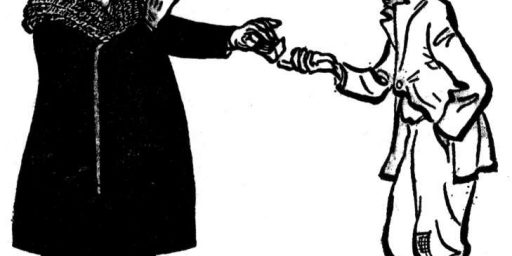
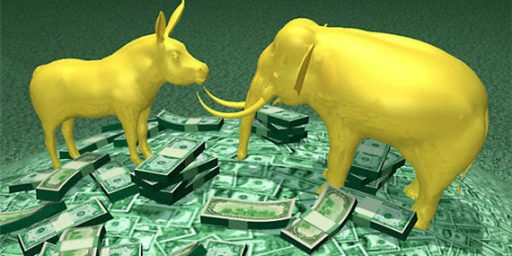
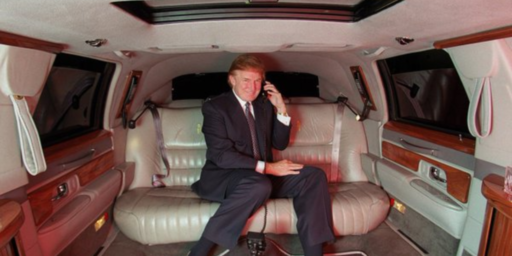
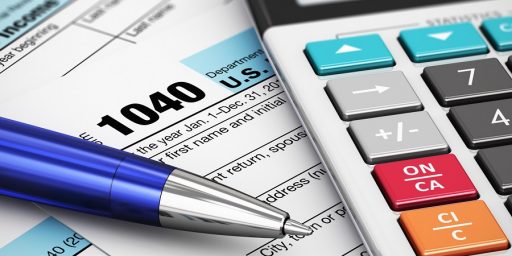
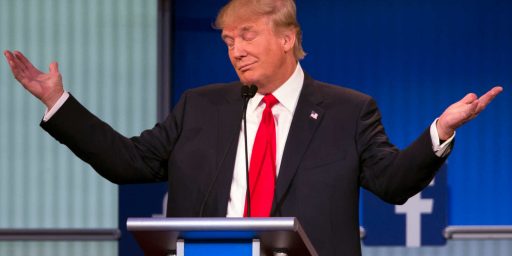
On the one hand it’s good that Trump is funding on $50 donations.
On the other hand…there is the rest of the story…he tried to get funding from mega-donors…but failed…and that’s where the self-funding thing came from. He didn’t have a choice.
http://www.politico.com/story/2015/11/donald-trump-sheldon-adelson-paul-singer-koch-brothers-215540
I may be looking at history through rose colored glasses, but I don’t think I can recall when so many candidates felt so free to blatantly lie about virtually everything. Oh, individual politicians did it – with Reagan being probably the world champion. (There was a three book series during his campaign and presidency called “Ronald Reagan’s Reign of Error” which highlighted many of his “errors” which he kept repeating even after they were shown to be untrue.) But this whole Republican slate is campaigning on the “last liar” principle. OK, to be fair, Kasich and Bush seem to be more normal in the BS department, but of course, they are way down in the polls.
Getting a bunch of $50 donations is almost equivalent to a publicly funded campaign, so I actually approve. But Clavin’s link shows that he’s not intentionally limiting the funding based on principles …
@C. Clavin: No way the Kochs or Adelson would fund Trump now. They want somebody dumb and manipulable. Rubio would be perfect. Trump, for better or worse, would be his own man. However, if Trump looks like he’ll be nominated, I expect they’ll jump on the bandwagon. For them, any R is better than Hillary.
I’ve been saying there’s stuff going on within the Republican Party, that it’s no longer an Establishment and Base thing, that it looks like there is now a “Koch Bros” wing of the establishment taking over the TP base.
This is pretty much a must read. http://www.politico.com/story/2015/11/the-kochs-vs-the-gop-215672
Doug, James, your party (OK, Libertarian, whatever) is not what it once was. Maybe we’re coming up on a Whig/Republican moment and the Koch Bros wing, for lack of a better name, will form a third party, leaving some shred of a Republican Party behind. Or maybe they’ll take over the Party, leaving the old R Establishment to shut up and take it or bail to the Democrats.
@gVOR08:
Republicans are into privatization…including the privatization of their party by selling out to the Koch’s, Adelson, Singer, et al.
I’m sure the eventuial nominee will show up to the debates in a suit with Koch Bros embroidered on it…like NASCAR drivers suits.
Money money money 🙂 Even at $3 billion, he still has a net worth around twelve times that of Romney. I was under the impression he could take out loans using real estate as collateral, but that’s my fever dream version of Trump campaign finance.
Really, what puts his self-funding to the test is the fact that Clinton expects to take in $2 billion for her campaign, and I highly doubt Trump (or anyone rich enough) wants to self-finance that much to mount a contest. It’s just a bad investment.
@C. Clavin: Actually, since the Supremes can’t understand the difference between speech and cash, that was my modest campaign finance reform proposal – every office holder has to prominently wear logo badges from his top five sponsors.
Is this article part of a new “Trump Derangement Syndrome” thing that we will start seeing now? I ask because even Doug notes that it’s sort of a nothingburger with no toppings or cheese and yet, here it is.